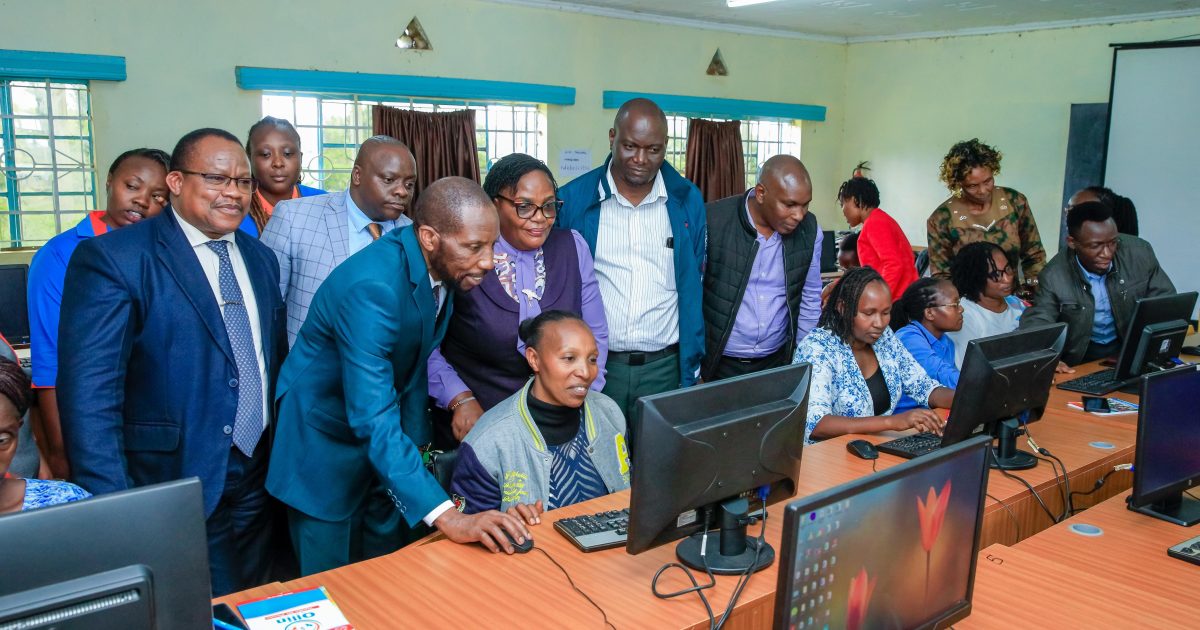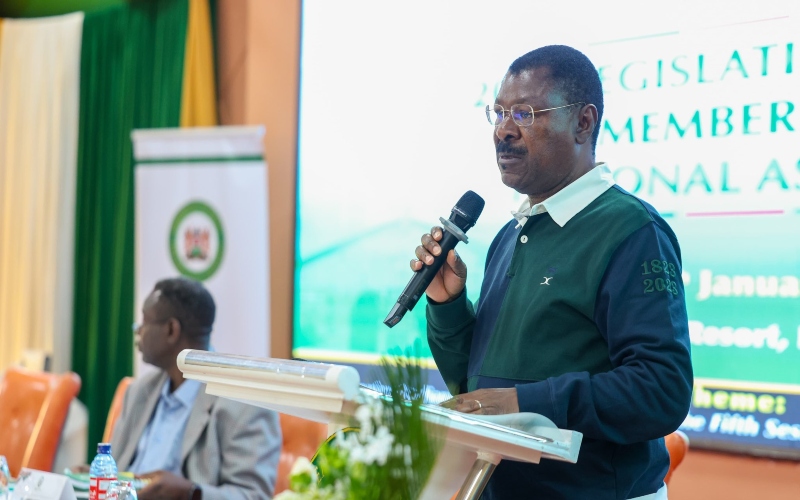Kirinyaga County has partnered with the Kenya National Commission for UNESCO (KNATCOM), the Ministry of Education, Zizi Afrique Foundation and Ollin Sacco to introduce structured digital learning in Early Childhood Development Education (ECDE) centres.
The collaboration which is designed to modernize teaching and learning at the foundational level, aim at ensuring that young learners and their teachers are better prepared for an increasingly digital world.
According to the County, the digital learning programme will begin with a pilot phase in five ECDE centres before scaling up to all 200 centres across the county, ultimately benefiting more than 16,000 learners.
It was further revealed that at the same time, 401 ECDE teachers are undergoing a two-week intensive digital literacy training at Kiamikuyu Polytechnic to build their capacity to deliver technology-enabled lessons in line with the Competency-Based Curriculum (CBC).
Kirinyaga Deputy Governor David Githanda said the partnership demonstrates the county’s strong commitment to strengthening early learning by equipping both teachers and learners with modern skills.
He noted that the transition to Competency-Based Education (CBE) remains one of the most important reforms, as it allows children to learn through exploration, creativity and hands-on experiences that shape real understanding.
Githanda explained that society is becoming increasingly digital, making it essential for learners and teachers to acquire 21st-century skills. He said the digital learning initiative will ensure educators are well-grounded in how young children absorb knowledge and how to support their growth in a dynamic learning environment.
ALSO READ:
He highlighted that the training will enable teachers to nurture competencies through play and discovery, helping them design child-centred activities that respond to individual learning needs. He said this approach ensures that every child receives attention that supports their pace and style of learning.
The Deputy Governor added that the programme will also strengthen teachers’ ability to assess learners based on skills rather than memorized content. This, he said, will help educators interpret learning outcomes accurately, plan daily lessons more effectively and align classroom practices with national education standards.
Githanda affirmed that ECDE teachers play a central role in shaping the character, confidence and development of a child. He emphasized that equipping them with digital skills ensures young learners gain competencies that match the demands of today’s modern world and prepares them for future opportunities.
He further noted that building educator capacity is essential for sustaining long-term improvements in the ECDE sector. By strengthening teachers’ understanding of modern instructional methods, the county hopes to create learning environments where children feel encouraged to explore, ask questions and develop confidence in their abilities.
Githanda reiterated that the county’s collaboration with partners also aims to ensure that every child in Kirinyaga begins their education journey with strong foundational skills. He said the county government will continue supporting initiatives that empower teachers, promote digital literacy and help young learners adapt to an increasingly changing world.
Ministry of Education representative Martin Kungania has lauded Kirinyaga County’s bold step to integrate digital technology into early childhood education. He noted that the move places the county at the forefront of national education reforms, emphasizing the critical role of ICT in preparing young learners for a technology-driven world.
ALSO READ:
“Digital literacy is no longer optional, it is a core competency for all learners by equipping ECDE teachers with digital skills, Kirinyaga is ensuring that children acquire the foundational knowledge needed to thrive in a modern, digital economy,” Kunganja said.
He highlighted that the teacher training programme is a timely intervention aimed at bridging the gap between traditional teaching methods and the growing demands of the 21st-century classroom.
He said the initiative will empower educators to deliver interactive, technology-enhanced lessons that boost learning outcomes.
Kungania further emphasized that Kirinyaga’s commitment sends a strong signal to other counties.
“This is a model for the entire country investing in digital capacity at the earliest stage of learning, is an investment in Kenya’s future workforce,” he said, noting that such forward looking initiatives are central to the government’s education transformation agenda.
Acting Education CECM Millicent Ngari said integrating digital tools into ECDE will enrich teaching, support cognitive development and make classroom activities more engaging.
She noted that interactive content helps children learn in ways that reflect their real environment.
“Digital learning enhances classroom interaction and allows children to engage with content in ways that reflect modern realities,” she said.
ALSO READ:
St. Anthony’s Boys sign midfielder Roy Clinton Osoi on full scholarship
KNATCOM CEO Dr. David Njogu, speaking on behalf of UNESCO, lauded Kirinyaga County for taking a bold step that aligns with UNESCO’s global agenda on digital transformation in education.
Njogu said the county is demonstrating practical commitment to teacher empowerment, innovation, and equitable access to technology. “Building teacher capacity in digital technology is crucial for early learning. Kirinyaga is setting an example for the rest of the country,” he said.
He also highlighted the importance of introducing digital literacy at an early age, emphasizing that children exposed to technology from a young age develop curiosity, confidence, and essential skills for navigating a rapidly evolving world.
Njogu stressed that proficiency in digital tools, data interpretation, and online innovation is no longer optional, but a key foundation for future academic and career success.
Teachers participating in the training described the programme as transformative. Simon Kariuki from Raimu ECDE Centre noted that digital lessons are set to increase classroom engagement while enhancing teacher ICT competence.
Similarly, Winnie Wairimu from Kimbimbi ECDE Centre observed that interactive digital learning stimulates creativity and problem-solving in children, making lessons more engaging and relevant to real life situations.
By Our reporter
You can also follow our social media pages on Twitter: Education News KE and Facebook: Education News Newspaper for timely updates.
>>> Click here to stay up-to-date with trending regional stories
>>> Click here to read more informed opinions on the country’s education landscape






